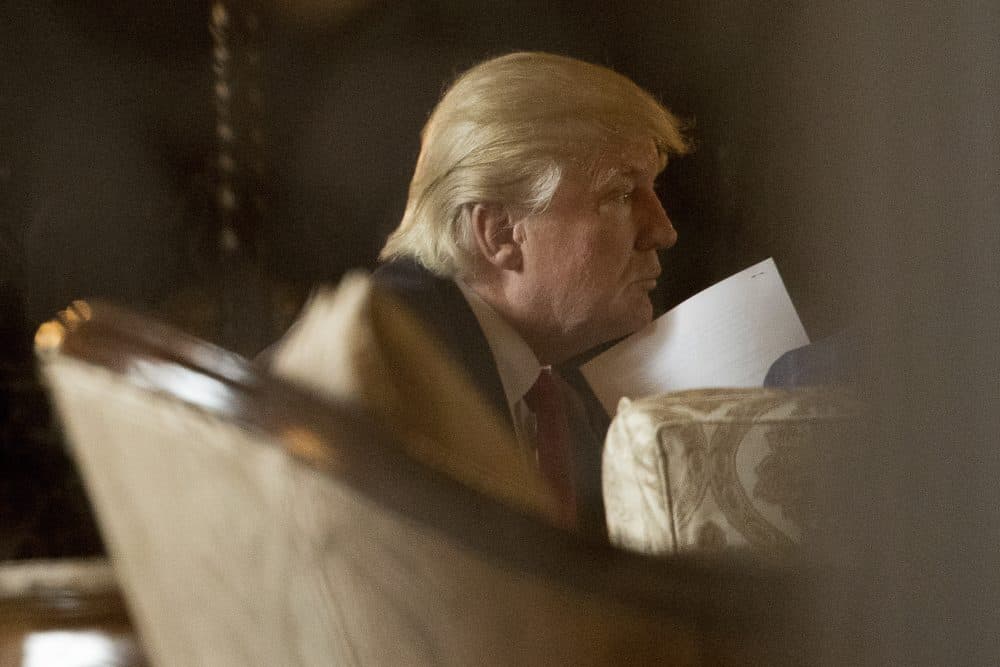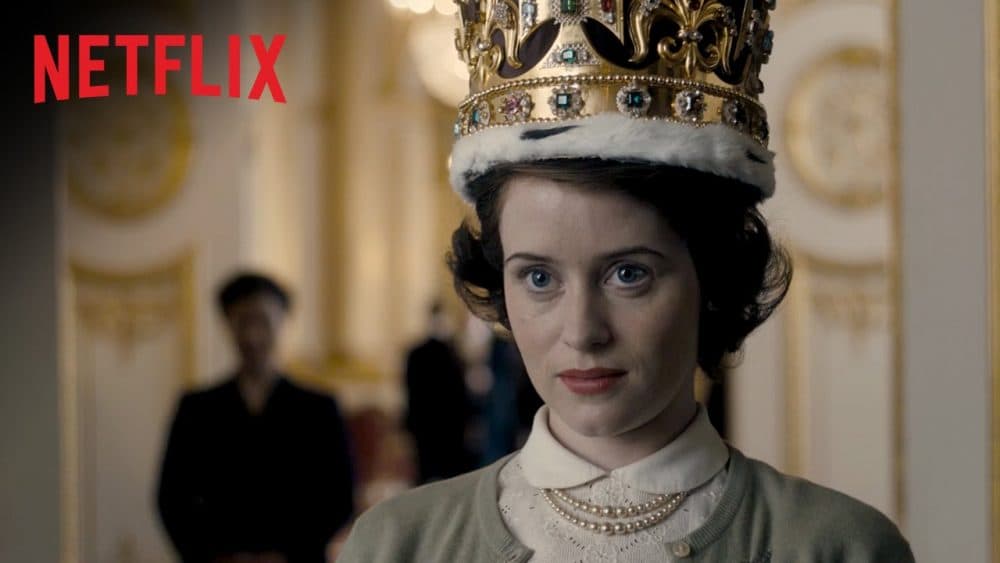Advertisement
Heavy Lies 'The Crown': What Donald Trump And Queen Elizabeth Have In Common

COMMENTARY
In the post-election days, after I shut off cable news, I turned to fiction for escape and instead got obsessed with Netflix’s loosely-biographical “The Crown.” Have you seen it yet? You should. Granted, the ascension of prim, reserved Elizabeth II to the queendom of England might not sound like riveting TV — at least, not for people who just witnessed the election of the least reserved human in history.
But “The Crown” is shockingly relevant to the moment we’re in and the administration we’re about to witness. It’s about how to deal with power you expected, but aren’t prepared to assume. How to balance personal will with public expectations. And how awful it must be, most of the time, to live up to a position so much larger than anyone who holds it.
I’m no monarchist, so it feels odd to feel sorry for people surrounded by opulence, aristocratic friends with names like “Porchey,” and the trappings of unearned reverence. (Think of what it would do to your brain to be called “your royal highness” every day.)
But the message of “The Crown” is that, in most ways, these positions aren’t a privilege so much as a prison. Elizabeth craves the life of a regular (wealthy) country wife. She realizes that her education — light on math and science, heavy on the English Constitution and the mechanics of horse racing — didn’t equip her for conversations with the informed, intelligent men of elected government.
['The Crown' is] about how to deal with power you expected, but aren’t prepared to assume. How to balance personal will with public expectations.
And she finds herself no match for her own palace staff, with their institutional knowledge and their firm conviction that things must be done the way they always have. Occasionally, she tries to make her own choices: to live in a very nice house that isn’t Buckingham Palace, or give her sister the go-ahead to marry a divorcé. Then a phalanx of men three times her age descends to explain why she can’t.
And so Elizabeth caves. Nearly every episode ends with an image of her, small and proper in respectable heels, dwarfed by the palace that took her identity. And the viewer sits wondering if she’s wrong. These nods to tradition could be wholly miscalculated — vestiges of an earlier, stodgier time. The British people seem to actually want individuality and romance from their royals, though it’s possible that what they really crave is drama that doesn’t end.

One thing you can say for Donald Trump is that he doesn’t seem intimidated by the office he’s about to take on. He dreams in tall towers and personalized airplanes and the trappings of the nouveau riche; the White House, to him, must be a drafty old two-story with a limited supply of gold leaf.
For many people, this was part of his appeal: He was outsider enough to blow up the institutions that feel so disconnected from most people’s everyday lives. But now Trump is in a strange position, the outsider moving to the palace. Our presidents aren’t kings — lately, they’re more like symbolic punching bags with power — yet the presidency still feels important and grand.
But does it have to be? So much of the disbelief from the never-Trump camp, the cognitive dissonance many of us still wake up to every day, came from reflexive expectations about the office and the comportment of the person who holds it. A president could never act this way, we kept telling ourselves, ignoring ample evidence that many people didn’t care.
Advertisement
This election has taught us, among other things, that if you run for president, you might actually win. And then what?
Seen this way, Trump’s unending string of Twitter utterances, reflexive and juvenile, might also be a stroke of genius. He’s asserting that he doesn’t have to live by anyone else’s rules of conduct or diplomacy. Who says you can’t tweet that half of the citizens you represent are your enemies? Who says you can’t praise Vladimir Putin for an anti-American move? That’s the palace talking.
And yet you can see Trump wavering — consenting to hear intelligence briefings, suggesting he might separate himself from his business interests — and wonder if the office is whispering to him after all. Will he find some kind of tutor, like Elizabeth did, to prepare him for leading a superpower? Will he conform to the career diplomats and bureaucrats who believe, with good reason, in expected behavior? Or will he treat every day like an unfolding plot that demands a twist or a sock-punch climax?
It will be interesting to watch — the ultimate serial TV. And how will we relate to the charismatic anti-hero? I can’t imagine feeling sorry for Donald Trump the way I feel sorry for the Queen. But, maybe I will, a little. This election has taught us, among other things, that if you run for president, you might actually win. And then what?
